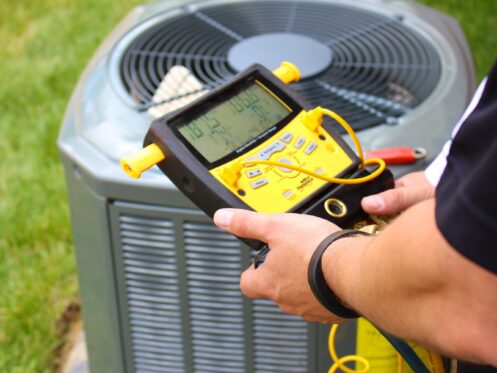Spring ends in the last week of June with the arrival of the summer solstice. In the days leading up to the solstice, average high temperatures in West Boylston, MA, rise into the mid-70s Fahrenheit. The humidity also increases during this time, making living spaces feel warmer throughout the day.
At DeWolfe Plumbing, Heating & Cooling, we receive numerous calls for HVAC repairs when temperatures rise. In many cases, the cooling systems function adequately for a few weeks before malfunctioning. In other cases, we receive calls about exorbitant monthly bills from the Municipal Light Plant. Emergency repair calls are more common during the sweltering days of June.
We have noticed a recurring pattern with our AC repair service throughout the decades we have been in business. Many of the repair services we complete should have been addressed before summer, thus avoiding costly breakdowns. When you spot the warning signs below, the best course of action is to contact us and schedule an inspection. Ignoring these signs could result in system breakdowns, emergencies in the middle of summer, and costly repairs.
Reduced or Weak Airflow
This is a common repair indicator for both ducted systems and ductless mini-splits. Several factors can cause this issue, and air filters are often the culprits. When dirty filters become clogged, they restrict airflow and force the system to work harder while reducing circulation. This is a simple repair that involves either filter replacement for central HVAC systems or cleaning for mini-splits.
Clogged coils are also common causes of weak airflow. In central HVAC systems, a blocked or dirty evaporator coil in the indoor unit prevents the air cooling process. If the coil is frozen, ice buildup can also diminish airflow. In ductless mini-splits, a dirty fan coil with dust and debris buildup can restrict airflow. If the indoor units have frozen coils, there may be an obstruction elsewhere.
Lower Energy Efficiency
Our technicians see this issue more often from July to September. We receive calls about bills from the Municipal Light Plant gradually rising from one month to the next. HVAC energy efficiency refers to how effectively a system converts electricity into cooling.
Efficient systems use less electricity to produce the same amount of cooling, resulting in manageable monthly bills. When your bills are unexpectedly high despite your HVAC seemingly working fine and producing cool air, our technicians investigate various underlying issues.
If dirty or clogged filters are not the issue, we check the coils. When the indoor or outdoor coils are covered in dirt, dust, or ice, they cannot dissipate heat efficiently. This forces the compressor to work harder and longer, thus increasing energy consumption. Unless the coils are damaged and must be replaced, cleaning them usually resolves the problem.
Refrigerant leaks can significantly impact your system’s efficiency, even if they are small. Low refrigerant levels mean the system has to run longer to cool your home. While the system may still produce cool air, its efficiency will decline over time. Other components we check include the thermostat, insulation, direct sunlight exposure, and weather stripping.
Short and Frequent Cycling
Short cycling occurs when your system turns on and off in short bursts. Most systems installed in the last two decades will run for about 15 to 20 minutes to cool and dehumidify effectively. When your system repeatedly starts and stops, it places unnecessary stress on its components. This leads to a reduction in energy efficiency and can cause premature failure.
As with reduced airflow and lower energy efficiency, our technicians check the filters and coils first. If your system has ductwork, we also check for leaks and obstructions. A more likely issue is low refrigerant levels, which diminish the system’s ability to cool effectively. When this happens, the compressor must work harder and may overheat, causing it to cycle more frequently as a protective measure. We look for refrigerant leaks to patch or replace the lines, and then we recharge the system to the correct levels.
In some cases, a miscalibrated thermostat may send incorrect readings to the cooling system, causing it to turn on and off erratically. If your thermostat is near a heat source, it can also trigger short cycling. We also check the wiring and electrical connections for faulty capacitors or loose components that may cause intermittent cycling unrelated to the compressor’s capacity. When it comes to mini-splits, short cycling can sometimes be caused by faulty control boards that our technicians can replace on the spot.
Frequently Asked Questions About Summer HVAC Issues
We are often approached with the following questions:
Is My Air Conditioner Overworking?
Your system is likely overworking if it runs constantly but struggles to cool your home. You might notice uneven cooling, with some living spaces feeling warmer than others. Short cycling, higher monthly bills, and increased humidity also indicate overworking. Addressing issues like dirty filters, obstructed coils, or low refrigerant levels can prevent your cooling system from overworking.
Why Is My Air Conditioner Blowing Warm Air Instead of Cold?
When your AC ignores thermostat readings and blows warm air in the summer, you may be dealing with issues related to the filter, coil, or refrigerant. If the compressor is running and blowing warm air, it is better to keep the system turned off until our technicians arrive.
Why Is My AC Unit Making Strange Noises?
In central systems with ductwork, rattling may indicate loose parts or debris. Buzzing noises often suggest electrical issues, while hissing may be caused by a refrigerant leak. If you hear grinding, it could mean there are bearing issues in the compressor.
For mini-split systems, clicking might indicate fan and assembly issues. If you hear gurgling, the problem could be in the refrigerant lines or the control board. Of all the HVAC issues described herein, noises have a higher potential to cause significant damage and costly repairs.
How Can I Improve Energy Efficiency During the Summer?
The best HVAC strategy is to schedule maintenance calls and tune-ups twice a year, ideally before summer and winter. Beyond tune-ups, you can use ceiling fans to circulate cool air, allowing for higher thermostat settings. Check the sealing around your windows and doors to prevent air leaks. Close the blinds or curtains during the hottest hours to reduce solar heat gain.
What Temperature Should I Set In the Summer?
Given our summer high temperatures around 80°F, setting your thermostat to 78°F is a good starting point. Personal preferences for comfort and energy efficiency may vary, so installing a smart thermostat is often the best solution. Smart thermostats learn your preferences and automatically create energy-saving schedules.
Air conditioning services aren’t not the only care we provide to homes and businesses in West Boylston and its surrounding communities. We also offer maintenance and installation of all HVAC systems, including furnaces, heat pumps, and more. Our technicians can improve your indoor air quality through duct cleaning and the installation of air purification systems. For all commercial and residential HVAC inspection and repair services, contact DeWolfe Plumbing, Heating & Cooling in West Boylston today.


